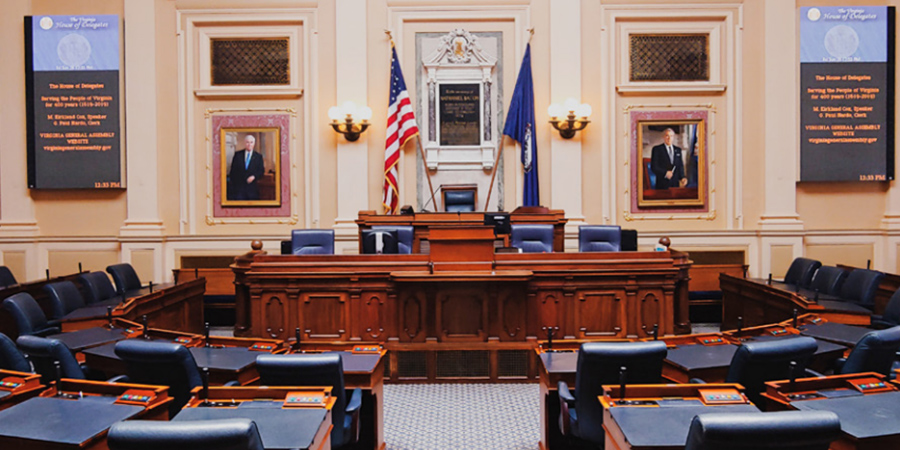Expectations for the 2020 General Assembly session

This year’s Virginia General Assembly promises to be an interesting one, as the November 2019 elections resulted in a change in leadership in both the House and the Senate. A new Speaker of the House (Filler-Corn), Senate Majority Leader (Saslaw) and large shifts in committee memberships of both bodies are among the changes. With Governor Northam still in office, the Democrats have consolidated control of state government for the first time in more than two decades. And that means we will see many of the priorities of the party at the forefront of the legislative agenda.
2020 Legislative Efforts
The new majority has already begun work on many of their priorities as it pertains to conservation and the environment, with a key focus on clean energy and climate change. As well, with 2020 being a budget year, we will see a push to make natural resource protection (consistently underfunded) a larger share of the state budget, largely focused on agency funding. Hopefully, the governor’s proposed budget will include full funding of the conservation programs we rely upon, as well as restore lost funding from numerous cuts that have been made to agency budgets over the last 20 years. However, we’ve heard budget conversations will be constrained by fear of a potential recession and that our community will have to fight hard to keep conservation from being overshadowed by other legislative priorities.
PEC will be focused upon the budget conversation as well as several other legislative initiatives:
Conservation Funding and Policy
PEC is supporting full funding of important conservation grant programs ($20M per year) and will continue to defend the Land Preservation Tax Credit. In addition, we will be working with our Virginia Conservation Network partners on the Heirs Bill, a bill meant to remedy procedural flaws in Virginia’s partition law that have disproportionately affected minority-owned properties. Developers often take advantage of these flaws, heavily impacting conservation outcomes.
Transportation
We expect additional attacks on the Smart-Scale Scoring system for transportation. Earlier attempts have focused on removing certain criteria (environmental/land use impacts) and increasing others, like congestion relief. Limiting the consideration of environmental and land use impacts and increasing the congestion relief factor would artificially elevate the score of some of the worst projects in our region, like the Bi-County Parkway/Outer Beltway.
Energy
As always, we will be working with our partners to pursue a cleaner, more efficient energy system. We will also be working with our partners in the Virginia Energy Reform Coalition to pass an omnibus utility restructuring bill, seeking to eliminate the current monopoly structure that has failed the environment and ratepayers for so many years. For more on the goals of the coalition, please visit the VERC website at www.virginiaenergyreform.org.
Land Use and Agriculture
We will be pursuing legislation in response to the fill dirt/landfill issues that have arisen in the last year. As well, we expect the administration will pursue several ideas with regard to the management of agricultural properties. These ideas include mandatory stream exclusion for cattle and potentially the extension of the Chesapeake Bay Act to localities west of I-95. If not handled appropriately, these changes could result in lost conservation opportunities and the conversion of agricultural lands to development. PEC will be working to ensure any changes in policy are phased and funded appropriately, do not place an undue burden on Virginia’s farmers or risk further loss of agricultural lands.
For more on these issues or any other questions about the 2020 session, feel free to contact Dan Holmes, PEC’s state policy director at dholmes@pecva.org.
